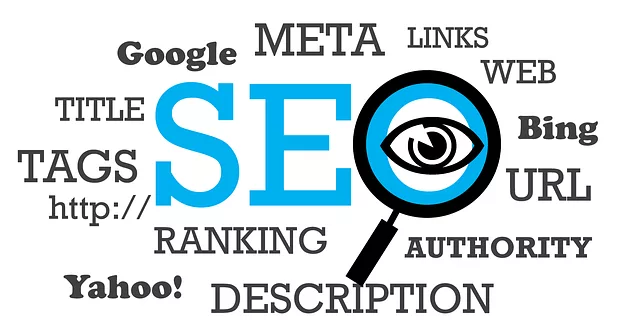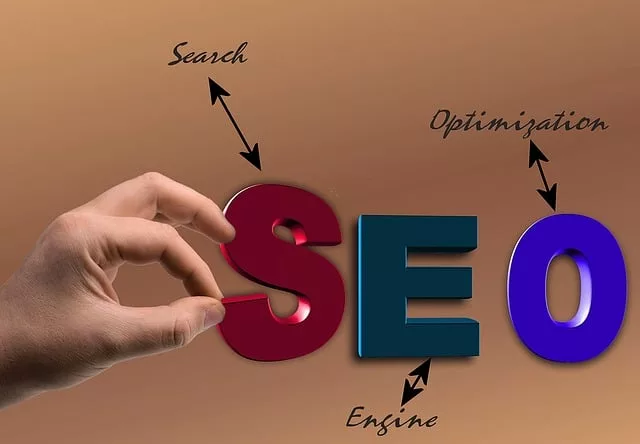The world of affiliate marketing is both exciting and competitive. With the right offer and audience, building a thriving online business that earns commissions continuously is possible. However, as more people enter the affiliate space, the strategies required to stand out have evolved. Search engine optimization is one of the most effective and sustainable methods for long-term success.
SEO is more than a buzzword. It is the foundation for visibility, which drives traffic, builds trust, and ultimately leads to sales. Mastering SEO is not optional for affiliate marketers promoting platforms like Wealthy Affiliate. It is the difference between struggling for clicks and generating consistent revenue.
This article will explore a complete and actionable approach to SEO strategies that can increase your affiliate sales. These strategies are designed to help you rank better, attract the right kind of visitors, and guide them toward purchasing through your affiliate links.
Why SEO Matters in Affiliate Marketing
Search engine optimization (SEO) is the process of enhancing your content to improve its ranking in search engines, such as Google. The goal is to appear when people search for topics, products, or solutions that align with your niche.
SEO is powerful for affiliate marketers because it targets individuals with a specific intent. When someone searches for the “best affiliate marketing course for beginners,” they are likely researching their options. If your content shows up and provides the answer, you become the guide. And when you are the guide, your audience is more likely to trust your recommendations.
SEO offers long-term value. Unlike paid ads, which cease when your budget is exhausted, organic traffic continues to flow as long as your content remains relevant and ranks well. This makes SEO ideal for building passive income streams.
The beauty of SEO is that it rewards consistency. You do not need to be a technical expert. With patience, persistence, and the right strategies, anyone can learn how to attract traffic and turn it into affiliate sales.


Start With Keyword Research That Reflects Buyer Intent
Every great SEO campaign begins with keyword research. But not all keywords are created equal. If your goal is to boost affiliate sales, focus on phrases that indicate the searcher is ready to take action.
These are known as buyer-intent keywords. They include words and phrases like:
- best
- top
- review
- comparison
- How to buy
- where to get
- product name + review
- Is [product] worth it
For example, someone searching “Wealthy Affiliate review” is likely evaluating whether the platform is right for them. This is a golden opportunity to offer value, share your experience, and include your affiliate link.
Find these keywords using keyword tools like Jaaxy (which is integrated into the Wealthy Affiliate platform), Ahrefs, SEMrush, or Ubersuggest. Focus on long-tail variations, which often have less competition and higher conversion rates.
Once you identify high-potential keywords, plan your content around them. Each page or blog post should target one primary keyword and several related terms. This keeps your content focused and helps search engines understand its relevance.
Create In-Depth, Helpful Content
Search engines prioritize content that satisfies user intent. Your blog posts, reviews, and guides must be genuinely helpful and informative. Thin content that only serves to push a link will rarely rank well or convert.
Start by putting yourself in the reader’s shoes. What questions are they asking? What doubts do they have? What results are they hoping for?
If you are writing a review of Wealthy Affiliate, go beyond the basics. Include:
- A breakdown of the training modules
- Screenshots of the dashboard
- Your results or progress
- A comparison with other platforms
- Answers to common objections
The goal is to become a trusted resource. People do not want hype. They want honesty and clarity. When your content addresses their concerns and offers solutions, your affiliate links become a natural part of the journey.
Include internal links to related posts on your site and external links to reputable sources. This improves SEO by strengthening the content’s structure and signaling trustworthiness to Google.
Use headers to break your content into sections, making it easier to read and scan. Optimize images by adding alt tags and compressing them for faster loading. These elements contribute to a better user experience, which Google rewards.

Optimize Your On-Page SEO
Once your content is written, it is time to ensure it is optimized for search engines. On-page SEO encompasses the elements you control on your website, including titles, headers, meta descriptions, and URLs.
Craft a compelling title that includes your target keyword. This not only helps with rankings but also encourages clicks. For example: “Wealthy Affiliate Review: Is It Really Worth It for Beginners?”
Write a concise meta description that summarizes the post and includes the relevant keyword. This appears in search results and influences whether someone clicks.
Use your keyword in the first 100 words of your content, and naturally throughout the post. Avoid keyword stuffing. Focus on readability and flow.
Structure your content with H2 and H3 headers. Include your keywords in at least one or two subheadings. This helps with both user experience and SEO.
Make your URLs clean and descriptive. Instead of www.yoursite.com/post1, use www.yoursite.com/wealthy-affiliate-review.
Use schema markup where appropriate. This structured data helps search engines better understand your content, which can lead to rich snippets that improve click-through rates.
Build a Solid Internal Linking Structure
Internal links connect one page on your website to another. This helps search engines crawl your site more effectively and distributes authority across your pages.
It also keeps users engaged. When visitors land on one post and find links to related content, they are more likely to stay longer, explore your site, and click on your affiliate links.
For example, in a post about affiliate marketing tools, you can link to another post that explains how to start an affiliate blog, or one that compares affiliate platforms like Wealthy Affiliate.
Use descriptive anchor text. Instead of “click here,” use something like “learn more about Wealthy Affiliate’s training modules.”
Audit your internal links regularly to ensure they are not broken and point to the most relevant and updated content.
Earn High-Quality Backlinks
Backlinks remain a key ranking factor. These are links from other websites pointing to your content. They act as votes of confidence, telling search engines your content is valuable and worth referencing.
Earning backlinks requires effort, but it is one of the most rewarding SEO strategies. Here are some ways to build them:
Guest blogging: Contribute valuable content to industry blogs with a link to your site.
Outreach: Reach out to bloggers and content creators within your niche. Please share your best content and explain how it adds value.
Skyscraper technique: Identify popular content in your niche, create something even better, and then reach out to those who linked to the original.
Interviews and collaborations: Appear on podcasts, write joint articles, or participate in expert roundups.
Avoid shady backlink schemes or buying links. These can lead to penalties and harm your rankings. Focus on earning links through genuine value and relationships.

Prioritize Site Speed and Mobile Optimization
User experience is a significant factor in SEO. No matter how good your content is, a slow, clunky website will turn visitors away and reduce conversions.
Run your site through Google PageSpeed Insights to identify issues. Common fixes include compressing images, enabling caching, and reducing unnecessary scripts.
Utilize a responsive design that displays well on all devices. With more users browsing from mobile phones, your site must function flawlessly on small screens.
Select a fast and reliable hosting provider. If you use WordPress, select a lightweight theme and install only essential plugins.
A better experience leads to lower bounce rates, longer session durations, and higher chances of affiliate conversions.
Optimize for Voice Search and Featured Snippets
Voice search is growing. People now ask questions to smart devices rather than typing queries, which is changing the way content is consumed and ranked.
Use natural language in your writing to optimize for voice search. Answer questions clearly and directly, especially in FAQ sections.
Write concise answers to common questions to earn featured snippets. Google often pulls these for voice responses.
For example:
Q: Is Wealthy Affiliate suitable for beginners?
A: Yes, Wealthy Affiliate is ideal for beginners. It provides step-by-step training, tools to help you build your website, and a supportive community to aid in your growth.
These short, informative answers improve your chances of being featured at the top of search results and read aloud by virtual assistants.
Keep Your Content Fresh and Updated
SEO is not a one-time task. Search trends, algorithms, and user preferences change over time. Keeping your content updated ensures it remains relevant and continues to rank.
Review your top-performing posts every few months. Update outdated information, refresh statistics, improve formatting, and add new insights.
If you promote Wealthy Affiliate, update your review to reflect the latest platform changes, pricing, or community features. This builds trust and keeps your recommendations up to date.
You can also repurpose content. Turn blog posts into videos, infographics, or social media snippets to expand your reach and reinforce your SEO efforts.
Track, Measure, and Refine
To improve your SEO and affiliate sales, you must track what works and what does not. Use tools like Google Analytics and Google Search Console to monitor traffic sources, rankings, bounce rates, and conversions.
Pay attention to which keywords bring in the most traffic. See which pages lead to the most affiliate link clicks. Use heatmaps to understand how users interact with your site.
Refine your content based on data. Double down on what works. Tweak what does not. SEO is a long game, and regular optimization leads to compounding growth.
Search engine optimization is one of the most powerful tools in an affiliate marketer’s toolkit. It takes time, effort, and consistency, but the results are worth it. When your content ranks well and speaks directly to the needs of your audience, sales happen naturally.
Whether promoting Wealthy Affiliate or any other product, SEO helps you connect with people searching for answers. It allows you to build trust, provide value, and guide users toward your recommended solutions.
In a noisy digital world, ranking high in search results is not just a technical achievement. It is a business advantage. And with the strategies in this guide, that advantage can be yours. Keep learning, testing, and staying focused on creating content that serves your audience and reflects your passion. That is the true path to lasting affiliate success.

